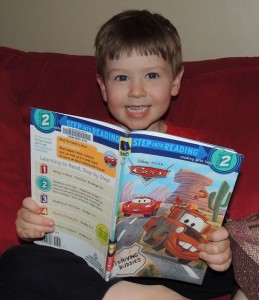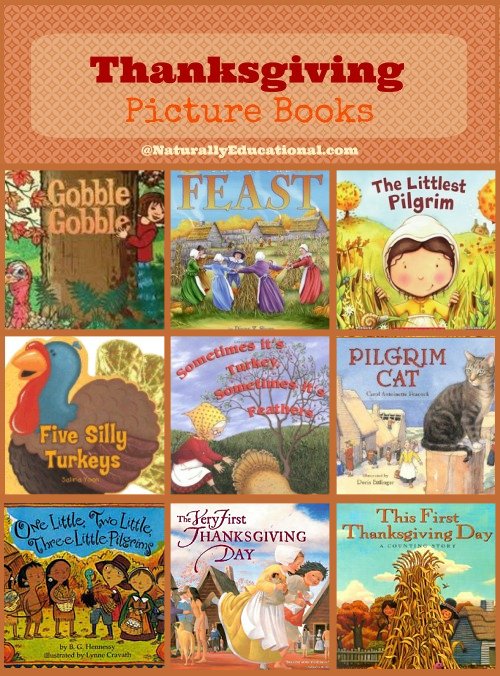My daughter loves reading but was bored by the early readers at school. She wanted to move up to higher levels with more interesting text. Her teacher sent home a note that she needs to improve her reading fluency in order to go to the next level.
By working with my daughter at home to improve her reading fluency, I found a few tips that help emergent readers read more fluently:

(This is my son, not my daughter…he was home and willing to illustrate the post. He’s my next reading victim…er…test subject…er…student.)
1. Model Fluency: My number one tip for all reading skills is to read, read, and read some more. In this case, I explained to my daughter what I meant by reading fluently and then demonstrated the skill. From talking with her, I believe she thought she had to sound out each word, even if she knew the word by sight. When kids are learning new skills, it is easy for them to lose sight of the actual goal. Make sure to explicitly point out that you are reading fluently and that reading smoothly and quickly is the goal.
2. Practice Sight Words: There should be words that kids just know on sight. These are words that are common in the English language. Often, these words are also difficult to sound-out. So, learning these sight words helps promote fluency. Use this list of Dolch Sight Words. We spell sight words out with magnetic letters, circle them in magazines, and write them in our writing journals. You can also laminate sight words on cards and use magnetic tape to stick them to the refrigerator. Add in a few favorite nouns, verbs, and adjectives, and you have an over-sized refrigerator magnet poetry set. Put the cards in a bucket, and draw them out. Have kids take turns reading or spelling the sight word and then using it in a sentence.
3. Chunking: Chunking is a form of segmenting, in which students break a word up into discrete sounds. In early phonics, students usually segment the word into each individual sound. For example, “cat” becomes k-a-t. However, as words grow longer, sounding out each phoneme inhibits fluency. If students know how “at” is usually pronounced, they can sound out k-at.
4. Word Families: Word families are chunks of word endings with the same spelling. Learning word families helps students chunk and decode unfamiliar words. Word families can be written on a flip book, made from spiral-bound index cards or on a word wheel. You can also put word family cards in a hat and take turns drawing a card. See how many words in that word family you can come up with in a certain time limit. I will show examples of these in future posts.
5. Poetry: Because most of the words in a word family rhyme, they can be great for writing poetry! Have your child fill-in the last word in lines of rhyming poetry. Have them write their own poetry using the words from a word family.
6. Readers’ Theater: Reader’s theater is a shared reading of a play. By alternating lines with your child, you are taking some of the pressure off–reading an entire book all alone can be daunting for an emergent reader. You can also alternate pages or sentences when you read books. Another advantage of readers’ theater is that clear emotion is built into the dialogue. Part of reading fluently is reading with emotion. If the kids find a play they enjoy, they can even put on a performance!
7. Word Ladders: Word ladders are puzzles that start with one word and change one letter in each step to create new words. For instance, start with “bat”. Change the first letter to create a mammal that might like to catch the bat. Change the last letter to create a word that you might wear on your head. Change the vowel to form a word from which you would drink. Word puzzles make learning to read more fun.
8. Repeated Readings: Reading a text many times helps children concentrate on fluency. They will most likely have memorized the basic storyline and much of the text. So, they can focus on reading smoothly, quickly, and with emotion.
I have a few home-made projects and book recommendations to share in future posts. In the meantime, I hope these tips help your emergent reader on the way to fluency! And come chat more literacy topics with other experts and parents at the Random House Read and Play Community, where I am a community leader.


Footage of Seiko watches being offered are shown on-line giving buyers
an concept of their situations.
This post is truly a good one it assists new the web users, who are wishing for
blogging.